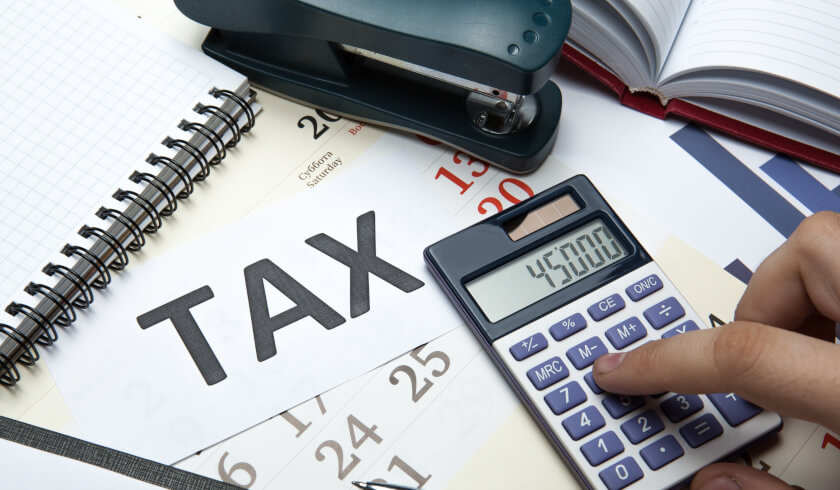Tax time 101: Income to be declared by rental property investors

When declaring income, investors will be required to include all rental-related income, including the full amount of rent and other associated payments that they receive or become entitled to when the property is rented out. All income, whether received by the investor or the agent, must be declared in the tax return.
Apart from cash, income may also be acquired as goods and services. In this case, the investor must work out the monetary value of the goods and services received based on their current market value.
Income to declare
Rental-related incomes include the following:
- Rental bond returns: Investors can be entitled to retain rental bond money when tenant defaults on rent, damages the property to the extent that repairs and maintenance are required and other instances as stipulated by the rental contract.
- Insurance payouts: In some circumstances, investors may receive insurance payment to compensate for property damages and unpaid rent.
- Letting and booking fees
- Associated payments: These may include payments that the investor receives as part of the normal, repetitive and recurrent activities that are intended to generate profit by using the rental property. Payments received in the form of goods and services must be declared based on their monetary value.
- Reimbursement or recoupment for deductible expenditure: This includes instances such as when the tenant covers the cost of repairs for which the investor can claim a deduction or when the investor receives a government rebate for the purchase of a depreciating asset.
- Excessive deductions for capital allowances: If limited recourse debt is used to finance or refinance expenditure on a depreciating asset, whether wholly or partly, the investor must declare excessive deductions for the capital allowances as assessable income.
- Lump sum payment: If the nature of the payment is a substitute for or prepayment of rental income, it will be considered as ordinary income and must be declared come tax time.
In the instance that the property is co-owned, the division of rental income and expenses will depend on the co-owners’ legal interest in the property, regardless of any agreement they may have that states otherwise, whether oral or written. The legal interest held by co-owners is stated in the title deed for the rental property. However, interest on money borrowed by only one of the co-owners need not be divided between all co-owners.
If the co-owners are joint tenants, they will hold an equal interest in the property. For co-owners who are tenants in common, they may hold unequal interests in the property based on prior agreement.
Meanwhile, partners carrying on a rental property business, the net rental income or loss must be divided based on the partnership agreement, even if the legal interests in the rental properties are different from the partners’ entitlements to profits and losses as stated in the partnership agreement. If the partnership agreement does not exist, income and loss will be divided between partners equally.
Records to keep
Since the Australian tax system relies on the self-assessment of taxpayers, investors must be able to work out the income they need to declare and the expenses they can claim and show how they came up with the figures provided.
In some cases, investors may be required to show written evidence to support their claims. Thus, they are strongly encouraged to keep important records relating to their asset.
Apart from serving as proof of correct information, good records can also help investors ensure that they are able to claim all their entitlements, reduce the risk of tax audits and adjustments, resolve issues relating to disputed assessments and adjustments and avoid penalties. If they are working with a tax adviser, having well-prepared records can also minimise the cost of the management of their tax affairs.
While there is no set list of records to keep, investors are advised to keep as much as they can for an average of five years from the date of the lodgement of tax return.
Among the types of records to keep are:
- Payments received: Salary, wages, allowances, rents, interests, dividends, managed funds, government benefits and pensions and other pensions or annuities.
- Expenses related to payments received: Car, travel, clothing, self-education and work-related expenses, as well as rental expenses, if any.
- Records related to the acquisition or disposal of a rental property
- Gifts, donations and contributions that are tax deductible
- Disability aids, attendant care or aged care expenses
Receipts and invoices are valid if their show the name of the supplier, the Australian business number (ABN) of the supplier, the amount of expense or purchase, the nature of goods or services purchased or expense incurred, the date when the expense was incurred and the date of the document.
In the instance where records are lost or destroyed, the investor can still be allowed to claim deduction for certain expenses if they have a complete copy of a lost or destroyed document or if the Australian Taxation Office (ATO) is satisfied that they took reasonable precaution to prevent the loss or destruction of the document and that it is not reasonably possible to obtain a substitute document.
At the end of the day, investors are responsible for lodging a tax return that is signed, complete and correct.
Investors are encouraged to engage with professionals, where appropriate, in order to understand their rights and entitlements and meet their obligations as rental property owners. The responsible lodgement of tax returns will ultimately help you save time and money while maximising the wealth-creation potential of your property.
The information has been sourced from the Australian Taxation Office.

